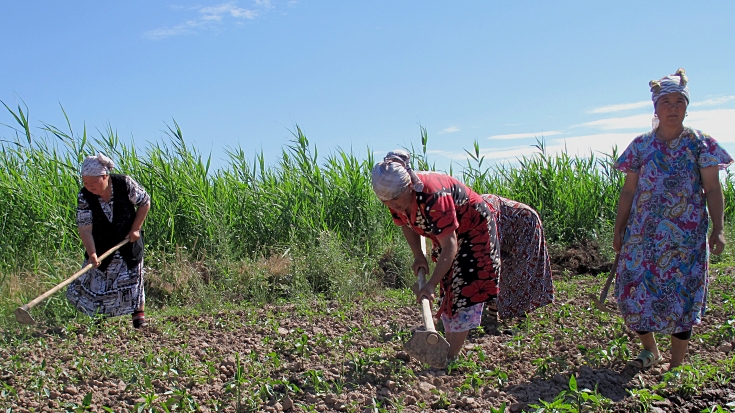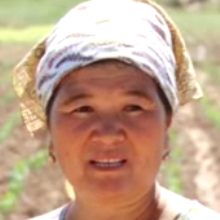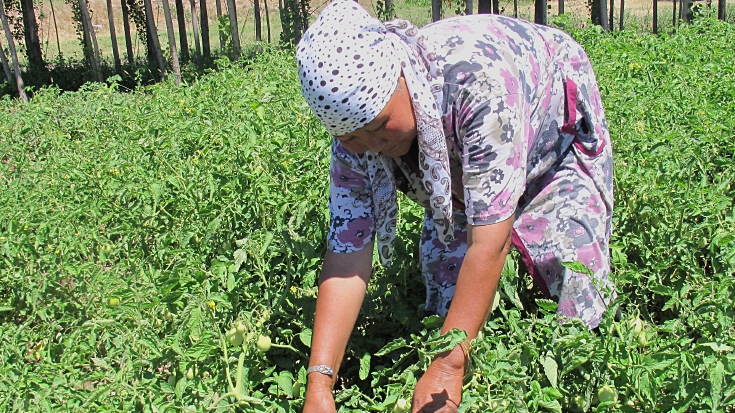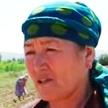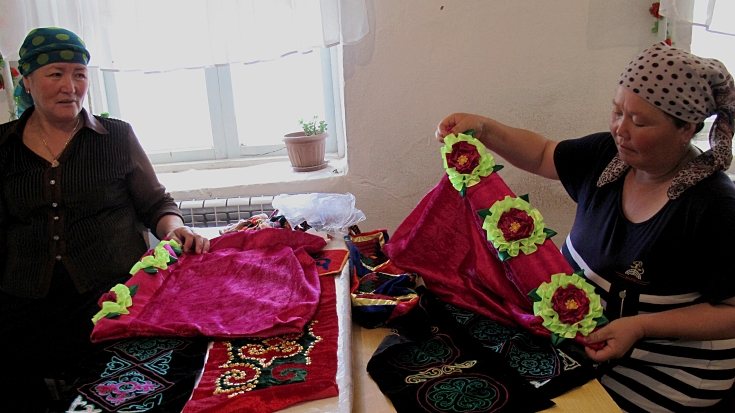Hoeing and raking in the fields, the dozen or so women of the Bay-El self-help group are working for their families and for each other. They’ve banded together to rent a couple of hectares of land in the small village of Choko-Dobo. They’re working together to get things done, but their proceeds will go home to their families. Every pepper or tomato they sell this autumn, after cost, is pure profit. And that feels good.
“Rather than sitting at home with no job, we’re part of a bigger activity, we’re together, we’re producing for our kids,” says Kunduz Sherova, a farmer. “This feeling is great, we grow vegetables, we make money, we’ve learned a lot!”
“We could see that people who joined groups earlier, their lives had changed, we saw that and we wanted to follow them,” agrees Davliat Chirakova, another group member.
There are 79 self-help groups like Kunduz Sherova’s in Jalalabad province. Self-help groups start with about US$20-25 worth of high quality seeds seeds and fertilizer per member, and then members take classes in basic agriculture. In the spring, the farmers ready to plant. The value of seeds and fertilizers that farmers receive through the World Bank-supported Agricultural Productivity and Assistance Project is repaid by self-help group members in the fall to allow further on-lending to new group members.
